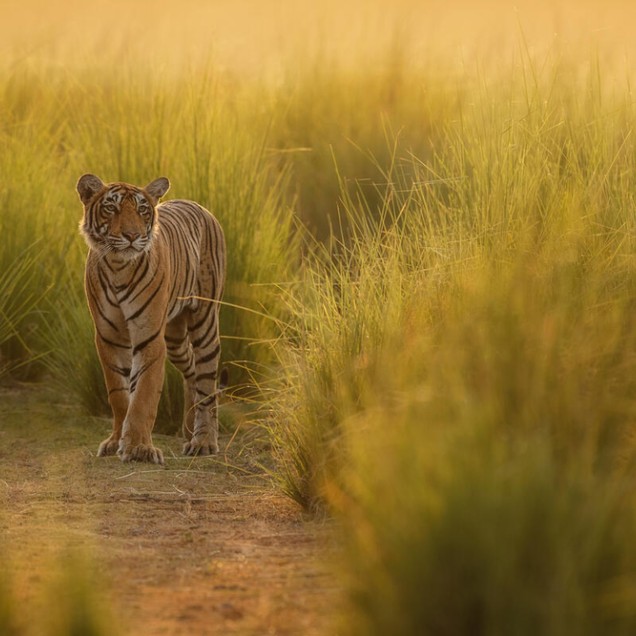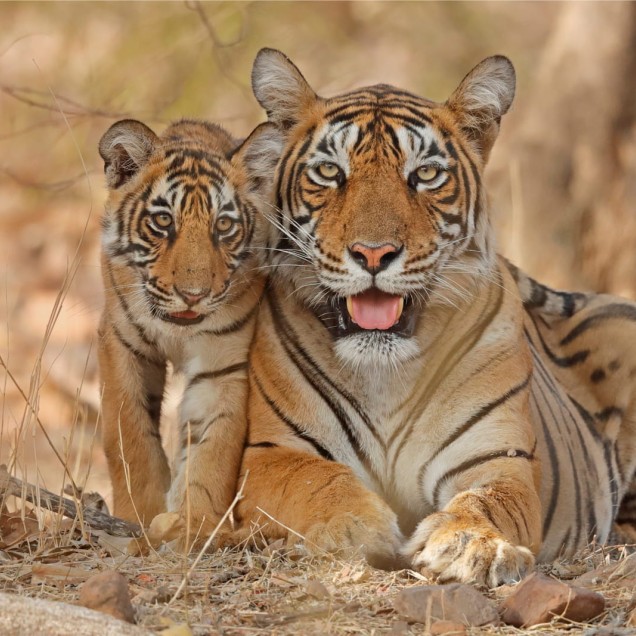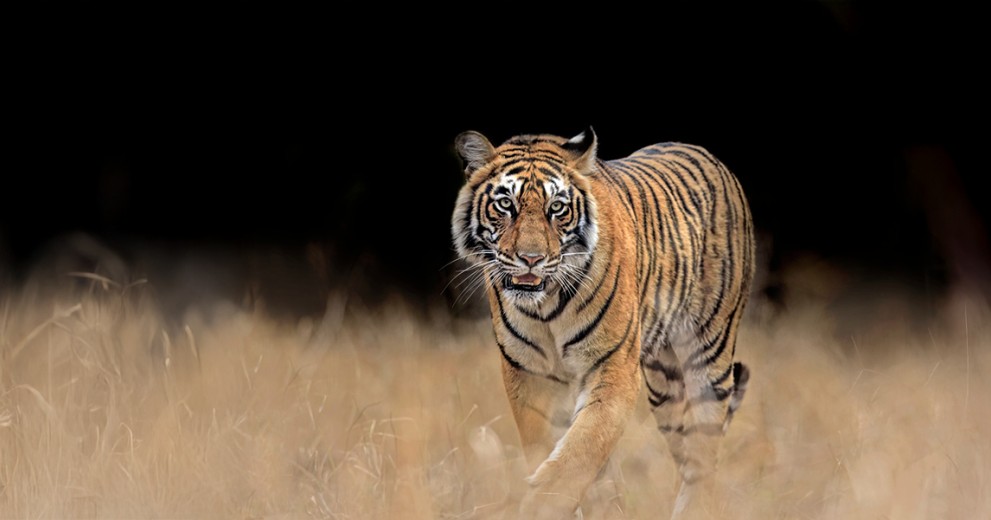Creating a tiger stronghold
Restoring and reconnecting degraded tiger reserves is key to tiger survival, we have a huge opportunity to create an important long-term tiger stronghold in Achanakmar. Will you help us reach the next remarkable milestone in tiger recovery?
Tiger Recovery
Whilst conservation efforts across Asia have helped to increase wild tiger populations from as few as 3,200 to around 5,500. Tigers are far from safe. Poaching, habitat loss and conflict with humans continues to threaten their recovery. Long term support is imperative to their existence.
Together we can help increase protection and resources to restore vital habitat for tigers, for people and for other wildlife. Enabling tiger recovery across Central India.
Use the slider below to reveal the impact of your support.
Ripe for Restoration
Achanakmar tiger reserve in Central India has been identified as a crucial tiger recovery region after decades of unsustainable harvesting of forest resources, human-wildlife conflict and poaching have left this area a shadow of its former self.
Achanakmar needs urgent action to restore it. We have a long-term conservation plan to restore the forests and help communities live alongside tigers without conflict. We just need you.

"I dream of seeing the forest full of healthy, thriving wild animals"
Earning their stripes

Aiding Biodiversity

Maintaining A Balance

Supporting Economies
Championing Tigers
Achanakmar is a crucial tiger landscape with vital connections to some of Central India’s most important tiger reserves. We urgently need to conserve the regions forests for tigers and other wildlife as well as for the Indigenous and local communities who call the reserve home.
WWF has been working in the region for over a decade, supporting a range of successful conservation projects. Thanks to this, we know what needs to be done in Achanakmar to enable tigers to bounce back.
This is the start of a critical journey in Central India, and we can’t do it without you.

Enabling people & tigers to thrive

Monitoring & Protection

Sustainable Livelihoods

Habitat Revitalisation
Please help restore Achanakmar's Roar
To achieve significant impact, WWF Guardians donate a minimum of £1,000 to a vitally important programme in urgent need of funding. We invite you to join our exclusive group and become a WWF Guardian today.
"The work we do is crucial for the survival of tigers"
As a WWF Guardian you’ll receive updates on how your support is helping our vital conservation work around the world and occasional invites to exclusive events to hear about the work you’re helping to fund from WWF experts. If you’d prefer not to receive these communications, please let us know.



